Search
Search Results

Definition
William IV of Great Britain
William IV of Great Britain (r. 1830-1837) succeeded his elder brother George IV of Great Britain (r. 1820-1830) to become the fifth Hanoverian monarch. William had a successful naval career, and his reign is best remembered for the democratic...

Article
Colonial Government in the Spanish Empire
The apparatus of colonial government in the Spanish Empire consisted of multiple levels, starting with the monarchy and Council of the Indies at the top and moving down to the viceroy, audiencias, mayors, and local councils. The system was...
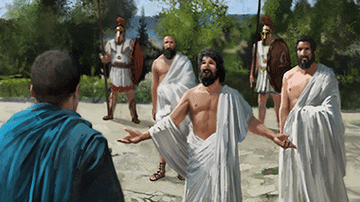
Definition
Ancient Greek Government
Ancient Greece witnessed a wide variety of government systems as people searched for the answers to such fundamental questions as who should rule and how? Should sovereignty lie in the rule of law, the constitution, officials, or the citizens...

Definition
The Kingdom of Kush
Kush was a kingdom in northern Africa in the region corresponding to modern-day Sudan. The larger region around Kush (later referred to as Nubia) was inhabited c. 8,000 BCE but the Kingdom of Kush rose much later. The Kerma Culture, so named...
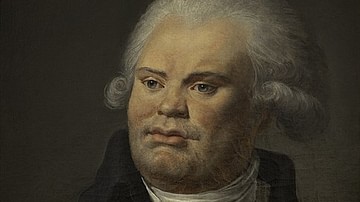
Definition
Georges Danton
Georges Jacques Danton (1759-1794) was a French lawyer who became a prominent leader of the French Revolution (1789-1799). Danton played a major role in the overthrow of the French monarchy and the subsequent establishment of the First French...
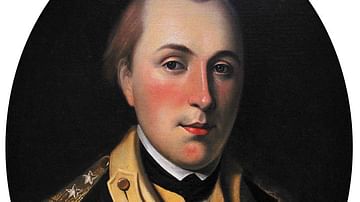
Definition
Gilbert du Motier, Marquis de Lafayette
Marie-Joseph Paul Yves Roch Gilbert du Motier, Marquis de La Fayette (l. 1757-1834), more commonly known in the United States as simply Lafayette, was a French aristocrat, military officer, and politician. He was a major figure in both the...

Definition
Plebeians
Plebeians were members of the plebs, the hereditary social class of commoners in ancient Rome. Their exclusion from political power by the patricians, who claimed to be the descendants of the first senators, led to Conflict of the Orders...
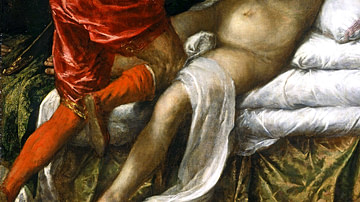
Definition
Lucius Tarquinius Superbus
Lucius Tarquinius Superbus ('Tarquin the Proud') was traditionally the seventh and last king of ancient Rome before it became a republic. He belonged to the Etruscan Tarquinii clan, reigned from 534 to 510 BCE, and was infamous for his tyrannical...

Definition
Louis-Antoine de Saint-Just
Louis-Antoine de Saint-Just (1767-1794) was a prominent figure of the French Revolution (1789-1799). After his election to the National Convention in September 1792, he led the push for the execution of King Louis XVI of France (r. 1774-1792...
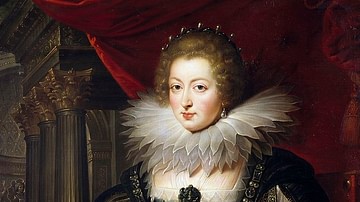
Definition
Anne of Austria
Anne of Austria (1601-1666), as the wife of King Louis XIII of France (r. 1610-1643), was queen consort of France and of Navarre when the Kingdom of Navarre was annexed by the French Crown. She also acted as regent for her son, King Louis...